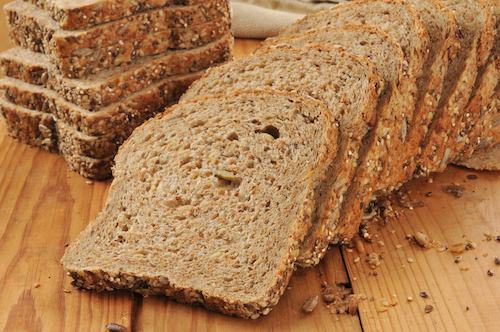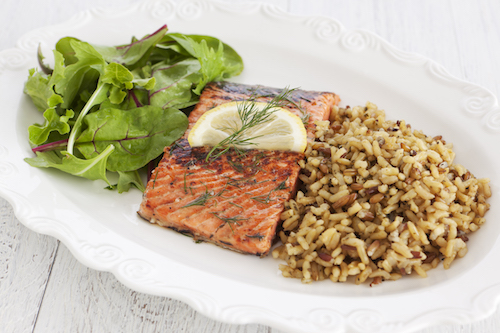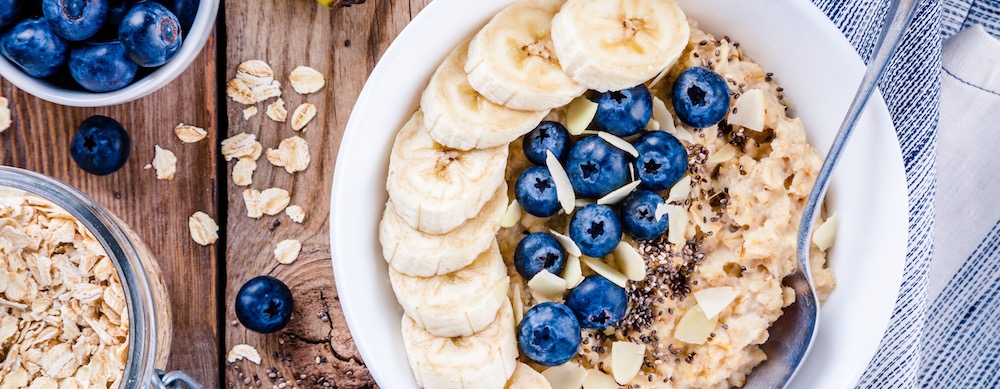Whole Grains

Bread, cereal, rice, and pasta can be either whole or refined grains.
What is the difference between whole and refined grains?
Whole grains are the whole grain kernel with the bran, germ, and endosperm intact. Refined grains started out as whole grains, but they are processed to give them a finer texture and longer shelf life. During this process, the bran and germ are removed, which also removes dietary fiber, iron, and many B vitamins.
All grains, whether they are wheat, rye, barley, etc. have three parts:
- The bran (high in fiber, minerals, and B vitamins),
- The germ (high in oil and vitamin E),
- The endosperm (high in starch).
During processing the bran and the germ are lost – and so are the nutrients. Sometimes, these nutrients are added back in through a process called “enrichment.” Enriched foods have iron and some B vitamins added back…but the fiber and other vitamins are left out…and when these components are left out – you miss out.
Don’t miss out! Make sure thatat least half of the daily grains that you eat are whole grains.
How do I know the difference?

Some whole grains are eaten in their pure form, like oats, brown rice, quinoa, etc. These grain products often have no other ingredients and are labeled just as they are. Become familiar with whole grains, there are many types. When other foods are added to whole grains in order to make breads and cold cereals, the product is labeled “whole grain” if indeed the grain portion is left intact.
So, the key here is to look for the word, “whole.” Whole grains are an important part of the diet that many people miss out on.
Are enriched grains the same as whole grains?
No. No. No. Enriched grains are not the same as whole grains.
Enriched grains will not have the same health benefits as whole grains.
How much grain should I eat?
The amount of breads and cereals you eat is dependent on your age, gender and energy needs. Guidelines can be found at https://www.choosemyplate.gov/grains. Or you can check-out the meal plans on this site HERE.
Just remember that whole grains should make up for at least half of the grain products you eat. In fact you may want to make a practice of always buying and eating whole grain products.
What is the connection between whole grains and cancer?
Whole grains are rich in fiber and fiber helps fight cancer! Fiber binds, dilutes, and removes cancer causing substances (carcinogens) from your body’s GI tract. Having a diet high in fiber and whole grains will also help you achieve and/or maintain a healthy weight—which helps prevent cancer.
